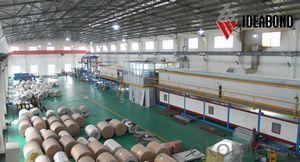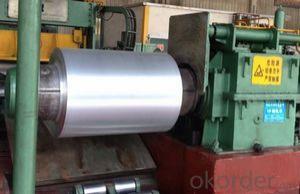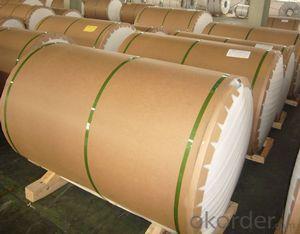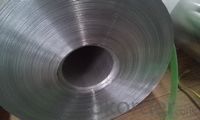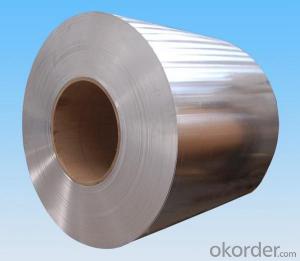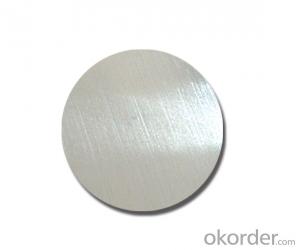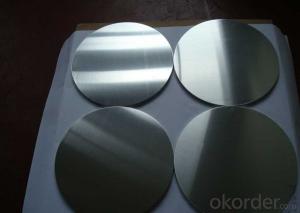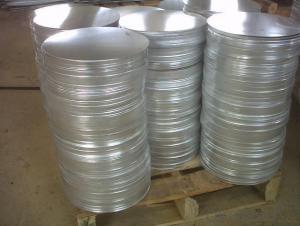Hvac Aluminum Coils - AA 1050 Aluminium Circles Suitable for Anodizing
- Loading Port:
- Shanghai
- Payment Terms:
- TT OR LC
- Min Order Qty:
- 20 m.t.
- Supply Capability:
- 600000 m.t./month
OKorder Service Pledge
Quality Product, Order Online Tracking, Timely Delivery
OKorder Financial Service
Credit Rating, Credit Services, Credit Purchasing
You Might Also Like
supply Mill-finished / coated aluminum circles /sheet/ coil:
Alloy: AA1050,1060,1100,1200,2024,3003,3304,3005,3015,5052,5086,5754,5083,6061,7050,7475,8011, etc
Temper: O, H14/16/18/22/24/32/ H112/H321/T6,T851,T7451,T7351, etc
Thickness: 0.02mm—20mm
Width: 100mm—2000mm (Can be slitted)
Notice: PE coating / PVDF coating / Embossment can be done if required.
- Q: Can aluminum coils be used for sound insulation purposes?
- Aluminum coils have the capability to serve as a means of sound insulation. This is because aluminum possesses exceptional sound-dampening attributes, which stem from its density and capacity to soak up and diminish sound waves. The utilization of aluminum coils can be witnessed in a variety of fields such as HVAC systems, the automotive industry, and construction, with the aim of diminishing noise transmission. These coils can be conveniently installed within walls, ceilings, or ductwork, thereby establishing a barrier that obstructs or absorbs sound vibrations. This, in turn, enhances sound insulation and diminishes noise levels. Moreover, the lightweight nature, durability, and corrosion resistance of aluminum coils render them a dependable choice for sound insulation solutions.
- Q: which metal is very common today and which one will be most common in future. steel or aluminum
- aluminum costs more to produce, but has some very good proprieties, you will likely see steel and aluminum way into the future in about the same ratios as today
- Q: How are aluminum coils stored to prevent damage?
- Aluminum coils are typically stored in a controlled environment to prevent damage. The storage area should be clean, dry, and well-ventilated to avoid any moisture buildup that could lead to corrosion. The coils are usually stacked on pallets or racks to keep them off the ground and protect them from any potential damage from dirt, dust, or water. It is important to ensure that the storage area is free from any sharp objects or heavy items that could potentially dent or scratch the coils. Additionally, the coils should be stored in a way that prevents them from shifting or falling, which could cause deformation or other damages. Proper labeling and organization of the coils is also crucial to easily identify and access them without causing any harm. Overall, careful attention to storage conditions and handling practices is essential to maintain the integrity and quality of aluminum coils and prevent any potential damage.
- Q: Are aluminum coils suitable for HVAC ductwork?
- Yes, aluminum coils are suitable for HVAC ductwork. Aluminum is a lightweight, durable, and corrosion-resistant material, making it an ideal choice for HVAC ductwork. It offers excellent heat transfer properties and is commonly used in both residential and commercial HVAC systems.
- Q: What is the cost involved in the production of an aluminum coil?
- <p>The cost to produce an aluminum coil varies significantly based on several factors. These include the cost of raw materials, energy costs for melting and rolling, labor, and overhead expenses. Additionally, the price of aluminum on the commodities market directly impacts the cost. As of recent market trends, the cost can range from a few hundred to several thousand dollars per ton, depending on the specific alloy and thickness of the coil. It's essential to consider the current market prices for aluminum and the efficiency of the production process when calculating the cost to produce an aluminum coil.</p>
- Q: I know this question is not so bright, but I am very curious why do we recycle aluminum cans? Is it that they are not biodegradable?
- Save the Rainforest! Recycle Aluminum! Did you know that aluminum comes from the ore Bauxite? And that bauxite is mined in the rainforest? Every time you throw away an aluminum can, that's one less that is being recycled, and one more can's worth of bauxite that needs to be mined from the rainforest. The bad thing about mining bauxite, just like any other ore, is that it is in the ground. Since bauxite is mined in the rainforest, there are tons of trees growing on top. In order to get to the bauxite, the trees have to be clear-cut and are usually burned since there main opperation is to mine the ore, not harvest lumber. This puts a lot of pollution into the air from the trees burning and the fossil fuels spent for the machinery to take them down. Once the land is clear, mining begins, burning even more fossil fuels. Then the ore is shipped to a facility that turns the ore into aluminum (another energy-expensive process) and then the aluminum is finally shiped to us (again, more energy, i.e. fossil fuels spent) so that we can then, finally, make cans out of them. So why don't we just make new cans out of the old ones when we are done with them? They are already here, no need for shipping. They are free, just need to be trasported to the recycling facility. And we don't have to cut rainforests to get more aluminum if we use what we've already got. Some day we will be mining our landfills because we've irresponsibly and selfishly used up our resources elsewhere. Hope this answers your question and gives you the motivation to start recycling!
- Q: How do you store and transport aluminum coils?
- Aluminum coils are typically stored and transported in a variety of ways depending on their size and weight. They are commonly stored in warehouses or outdoor yards, either horizontally on racks or vertically on stands. To prevent damage and ensure stability, aluminum coils are often stacked securely and separated by wooden blocks or spacers. When it comes to transportation, aluminum coils are usually loaded onto flatbed trucks or shipping containers. They may be secured with straps or chains to prevent movement during transit and to ensure their safe delivery to the desired destination.
- Q: How do aluminum coils contribute to the reduction of carbon footprint?
- Aluminum coils contribute to the reduction of carbon footprint in several ways. Firstly, aluminum is a lightweight material, which means that it requires less energy to transport compared to heavier materials like steel. This reduces fuel consumption and emissions associated with transportation, thereby reducing the overall carbon footprint. Additionally, aluminum is highly recyclable and can be recycled indefinitely without losing its quality. The process of recycling aluminum requires significantly less energy (up to 95% less) compared to producing new aluminum from raw materials. By using aluminum coils, which can be easily recycled, we can reduce the demand for new aluminum production, which in turn reduces the carbon emissions associated with the extraction and refining of raw materials. Moreover, aluminum coils have excellent thermal conductivity properties. This makes them highly efficient for use in heating and cooling systems, such as air conditioning units and heat exchangers. By using aluminum coils in these applications, energy consumption is reduced as they facilitate the transfer of heat more efficiently, resulting in lower energy consumption and reduced carbon emissions. Lastly, aluminum coils have a longer lifespan compared to other materials, such as copper or steel. This means that they require less frequent replacement, resulting in reduced waste generation and lower carbon emissions associated with the manufacturing and disposal of new coils. Overall, the utilization of aluminum coils contributes to the reduction of carbon footprint through its lightweight nature, recyclability, thermal conductivity properties, and longer lifespan. By choosing aluminum coils over other materials, we can make significant strides in reducing carbon emissions and promoting a more sustainable future.
- Q: Are there any safety concerns when handling aluminum coils?
- When handling aluminum coils, there are several safety concerns that need to be addressed. One of the main concerns involves the risk of injury from the sharp edges of these coils. Typically, aluminum coils are formed into long, thin sheets that may have sharp edges. Therefore, it is crucial to handle them with care and wear appropriate protective gloves to avoid cuts and abrasions. Another safety concern pertains to the weight of the coils, which can lead to potential injuries. Aluminum coils can be quite heavy, especially when they are stacked together. To prevent strains and back injuries, it is important to utilize proper lifting techniques and equipment. Moreover, there is a potential fire hazard associated with handling aluminum coils. Due to its high flammability, aluminum can ignite if exposed to sparks, open flames, or high temperatures. It is imperative to store and handle aluminum coils away from any potential ignition sources. Additionally, ensuring that the area is well-ventilated is crucial in order to prevent the accumulation of flammable vapors. Lastly, it is essential to be aware of the potential health risks linked to aluminum. Although aluminum itself is not highly toxic, there is evidence suggesting that prolonged exposure to high levels of aluminum can be detrimental to human health. Therefore, taking appropriate precautions, such as wearing respiratory protection in dusty environments and following proper hygiene practices, is vital to minimize the risk of exposure. In conclusion, by receiving proper training, adhering to safety guidelines, and taking necessary precautions, the risks associated with handling aluminum coils can be minimized.
- Q: Calculate the specific heat of aluminum (in calories).mass of aluminum25.0 gmass of water23.2ginitial temperature of aluminum98.0Cinitial temperature of water20.0Cfinal temperature of water33.0Cround to three decimal places, do not include units.
- Heat gained by water = heat lost by aluminum Heat = H mass = m specific heat =c change in temperature = dT H = mcdT mcdT for water = mcdT for Al (23.2)(1.00)(13) = (25.0)(c(Al))(33-98) c(Al) = (23.2)(1.00)(13)/(25.0)(65) = 0.186 This value is just a bit below the known value of specific heat for aluminum, where c = 0.217 cal/g.C
Send your message to us
Hvac Aluminum Coils - AA 1050 Aluminium Circles Suitable for Anodizing
- Loading Port:
- Shanghai
- Payment Terms:
- TT OR LC
- Min Order Qty:
- 20 m.t.
- Supply Capability:
- 600000 m.t./month
OKorder Service Pledge
Quality Product, Order Online Tracking, Timely Delivery
OKorder Financial Service
Credit Rating, Credit Services, Credit Purchasing
Similar products
Hot products
Hot Searches
Related keywords
